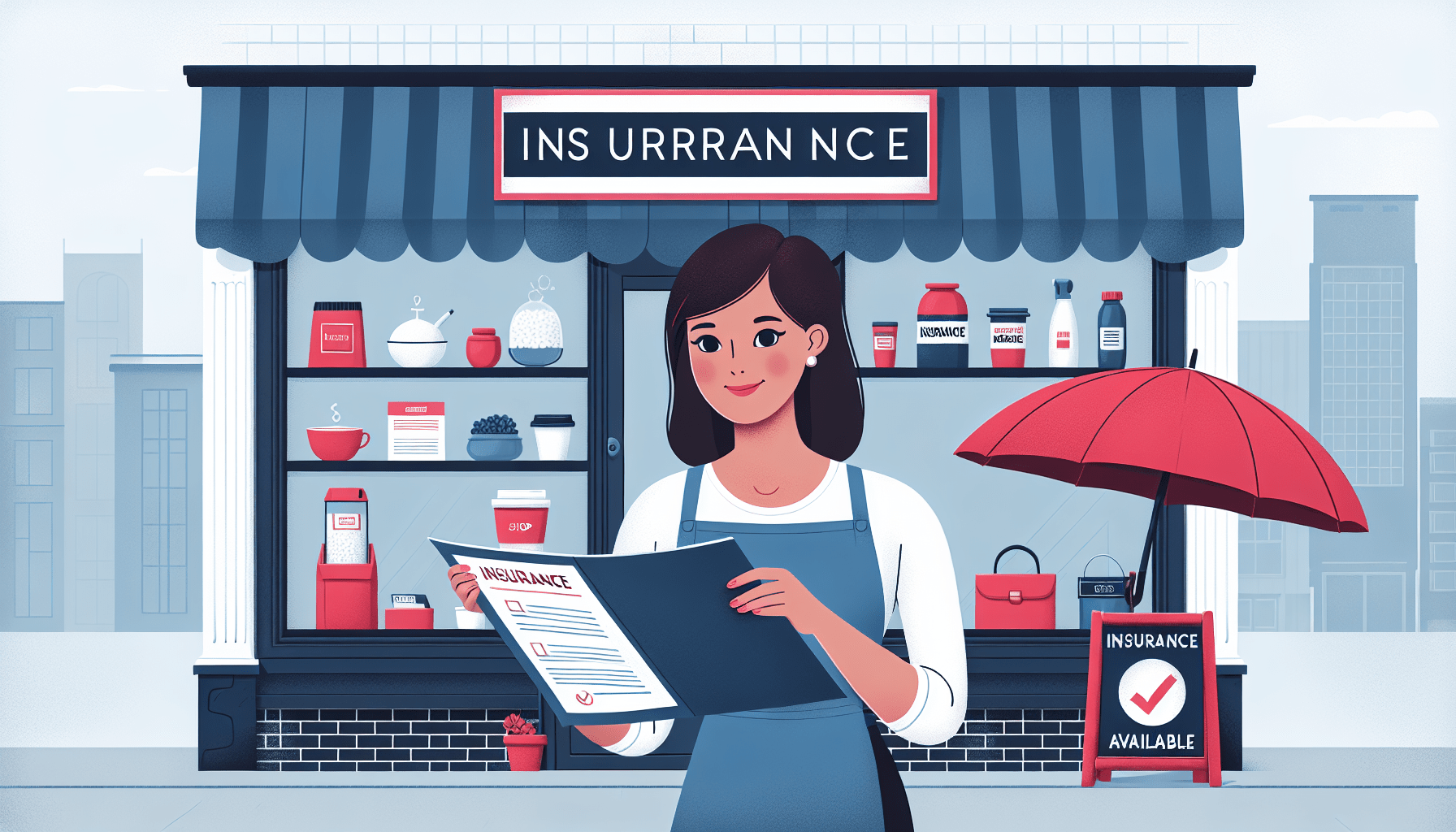Introduction to Small Business Insurance Quotes
Small business owners face unprecedented challenges in 2025, from cyber threats to supply chain disruptions and evolving regulatory landscapes. With over 33.2 million small businesses operating in the United States as of 2024, according to the Small Business Administration, protecting your enterprise with comprehensive insurance coverage has never been more critical.
The small business insurance market has evolved significantly, with digital-first providers offering streamlined quotes and traditional carriers enhancing their online platforms. Whether you’re launching a new LLC or reassessing your existing coverage, finding the right insurance partner can mean the difference between surviving a crisis and closing your doors permanently.
This comprehensive guide examines the top 5 small business insurance providers for 2025, analyzing their quote processes, coverage options, pricing structures, and customer satisfaction ratings. We’ll help you navigate the complex landscape of business insurance to find the perfect protection for your unique needs.
Understanding Small Business Insurance Needs {#understanding-needs}

Essential Coverage Types for Modern Businesses
Before diving into specific providers, it’s crucial to understand the fundamental insurance coverage types every small business should consider:
General Liability Insurance forms the foundation of business protection, covering third-party claims for bodily injury, property damage, and advertising injury. This coverage is particularly vital for LLCs, as it protects personal assets from business-related lawsuits.
Professional Liability Insurance (also known as Errors & Omissions) protects service-based businesses against claims of negligence, mistakes, or failure to deliver promised services. With the rise of remote work and digital services, this coverage has become increasingly important.
Commercial Property Insurance safeguards your business assets, including equipment, inventory, and office space, against damage from fire, theft, vandalism, and certain natural disasters.
Cyber Liability Insurance has emerged as a critical coverage type, protecting businesses from data breaches, ransomware attacks, and other cyber threats. The average cost of a data breach reached $4.88 million in 2024, according to IBM’s Cost of a Data Breach Report.
Risk Assessment Framework for 2025
Risk CategoryHigh-Risk IndustriesMedium-Risk IndustriesLow-Risk IndustriesCyber ThreatsHealthcare, Finance, LegalRetail, Real EstateManufacturing, AgricultureLiability ClaimsConstruction, Food ServiceConsulting, MarketingTechnology, Remote ServicesProperty DamageRetail Stores, RestaurantsOffices, WarehousesHome-Based BusinessesBusiness InterruptionManufacturing, EventsService BusinessesDigital/Online Only
Top 5 Small Business Insurance Providers for 2025 {#top-providers}
1. Next Insurance – The Digital Disruptor
Overview: Next Insurance has revolutionized the small business insurance landscape with its AI-powered quote system and instant policy issuance. Founded in 2016, the company has quickly become a leader in serving small businesses with streamlined, affordable coverage.
Key Strengths:
- Instant online quotes and policy issuance
- Competitive pricing for general liability and professional liability
- Industry-specific coverage options
- Excellent mobile app with 4.8-star rating
- 24/7 customer service availability
Coverage Options: Next Insurance specializes in essential business coverages including general liability, professional liability, commercial auto, tools and equipment, and business interruption insurance. Their quote process takes less than 10 minutes, making them ideal for busy entrepreneurs.
Pricing Structure: General liability insurance starts at $7 per month for low-risk businesses like consultants and freelancers. Professional liability coverage begins at $9 per month, while commercial auto insurance varies based on vehicle type and usage.
Customer Experience: Next Insurance maintains a 4.2-star rating on Trustpilot with over 2,000 reviews. Customers consistently praise the quick quote process and responsive customer service. The Next Insurance phone number (1-888-263-9292) connects directly to licensed agents for personalized assistance.
Best For: Tech startups, consultants, contractors, and service-based businesses seeking quick, affordable coverage.
2. Allstate Business Insurance – The Trusted Traditional Leader
Overview: Allstate’s business insurance division leverages over 90 years of insurance expertise to provide comprehensive coverage solutions for small and medium-sized businesses. Their extensive agent network and financial stability make them a reliable choice for businesses seeking long-term partnerships.
Key Strengths:
- Strong financial ratings (A+ from AM Best)
- Extensive local agent network
- Comprehensive coverage options
- Bundle discounts with personal insurance
- Established claims processing system
Coverage Options: Allstate offers a full spectrum of business insurance products including general liability, commercial property, business auto, workers’ compensation, cyber liability, and business interruption coverage. Their BusinessProtector package combines multiple coverages for enhanced protection.
Pricing Structure: Allstate business insurance costs vary significantly based on industry, location, and coverage limits. General liability insurance typically ranges from $300-$1,200 annually for small businesses. The Allstate business insurance phone number (1-877-810-2920) provides direct access to specialized business agents.
Customer Experience: Allstate maintains strong customer satisfaction ratings, with businesses appreciating the personal relationships with local agents and comprehensive claims support. Their digital platform has improved significantly, offering online quotes and policy management.
Best For: Established businesses seeking comprehensive coverage, companies with complex insurance needs, and businesses preferring face-to-face agent relationships.
3. State Farm Business Insurance – The Community-Focused Provider
Overview: State Farm’s business insurance division combines the company’s mutual structure with extensive local presence to serve small businesses across diverse industries. Their commitment to community involvement and personalized service sets them apart in the marketplace.
Key Strengths:
- Largest personal lines insurer with strong business division
- Mutual company structure focused on policyholder interests
- Excellent financial stability ratings
- Strong local agent relationships
- Competitive pricing for bundled coverage
Coverage Options: State Farm small business insurance includes general liability, commercial property, business auto, workers’ compensation, and cyber liability coverage. Their BusinessSimple package provides streamlined coverage for small businesses with straightforward needs.
Pricing Structure: State Farm business insurance premiums are competitive, especially when bundled with personal insurance policies. General liability coverage typically starts around $200-$800 annually, with significant discounts available for multi-policy customers.
Customer Experience: State Farm consistently ranks high in customer satisfaction surveys, with businesses appreciating the personalized service and local agent accessibility. Their claims process is efficient, with most claims resolved within industry-standard timeframes.
Best For: Small businesses seeking personalized service, companies wanting to bundle business and personal insurance, and businesses in rural or suburban markets.

4. Geico Business Insurance – The Cost-Effective Solution
Overview: Geico has expanded beyond auto insurance to offer competitive business insurance solutions through partnerships with leading commercial insurers. Their brand recognition and cost-focused approach appeal to price-conscious small businesses.
Key Strengths:
- Competitive pricing across coverage types
- Strong brand recognition and trust
- Simplified online quote process
- Good customer service ratings
- Flexible payment options
Coverage Options: Geico business insurance provides general liability, professional liability, commercial property, business auto, and workers’ compensation coverage. While not as comprehensive as some competitors, they cover essential business needs effectively.
Pricing Structure: Geico positions itself as a cost-effective option, with general liability insurance starting around $150-$600 annually for small businesses. Their transparent pricing and discount opportunities make them attractive to budget-conscious entrepreneurs.
Customer Experience: Geico’s business insurance customers report satisfaction with the straightforward application process and competitive rates. While not offering the personalized service of traditional carriers, their efficiency appeals to no-frills business owners.
Best For: Price-conscious small businesses, companies with straightforward insurance needs, and businesses already using Geico for personal coverage.
5. Nationwide Small Business Insurance – The Versatile Provider
Overview: Nationwide’s small business insurance division offers flexible coverage solutions backed by strong financial stability and extensive industry experience. Their focus on emerging risks and innovative coverage options positions them well for 2025’s challenges.
Key Strengths:
- Strong financial ratings and stability
- Innovative coverage options for emerging risks
- Excellent online tools and resources
- Competitive pricing for specific industries
- Strong workers’ compensation programs
Coverage Options: Nationwide small business insurance encompasses all standard coverage types plus specialized options like cyber liability, employment practices liability, and business income protection. Their SmartBusiness package provides customizable coverage combinations.
Pricing Structure: Nationwide’s pricing varies by industry and coverage needs, with general liability insurance ranging from $250-$1,000 annually. They offer competitive rates for specific industries like healthcare and professional services.
Customer Experience: Nationwide receives positive reviews for their comprehensive coverage options and knowledgeable agents. Their digital platform provides easy policy management and claims reporting capabilities.
Best For: Businesses with specialized coverage needs, companies in high-risk industries, and organizations seeking innovative insurance solutions.
Comprehensive Coverage Comparison {#coverage-comparison}
Coverage Matrix: Top 5 Providers
Coverage TypeNext InsuranceAllstateState FarmGeicoNationwideGeneral Liability✓ Excellent✓ Excellent✓ Excellent✓ Good✓ ExcellentProfessional Liability✓ Excellent✓ Good✓ Good✓ Basic✓ GoodCyber Liability✓ Good✓ Excellent✓ Good✓ Limited✓ ExcellentCommercial Property✓ Basic✓ Excellent✓ Excellent✓ Good✓ ExcellentBusiness Auto✓ Good✓ Excellent✓ Excellent✓ Excellent✓ GoodWorkers' Comp✗ Not Available✓ Excellent✓ Excellent✓ Good✓ Excellent
Industry-Specific Coverage Analysis
Technology Companies: Next Insurance and Nationwide lead in cyber liability coverage, while Allstate offers comprehensive professional liability options.
Retail Businesses: State Farm and Allstate provide excellent commercial property coverage with business interruption protection.
Service Businesses: Next Insurance and Geico offer streamlined general liability and professional liability solutions at competitive rates.
Construction Companies: Allstate and Nationwide provide robust coverage for high-risk industries with specialized liability protection.
Cost Analysis and Quote Optimization {#cost-analysis}
Average Premium Ranges by Business Type (2025)
Business TypeAnnual Premium RangeTop Recommended ProviderConsulting/Professional Services$200 - $800Next InsuranceRetail Store$500 - $2,000State FarmRestaurant/Food Service$1,000 - $3,500AllstateConstruction$1,500 - $5,000NationwideTechnology/Software$300 - $1,200Next InsuranceHealthcare Services$800 - $2,500Allstate
Premium Optimization Strategies
Bundle Discounts: Combining multiple coverage types can reduce premiums by 15-25%. State Farm and Allstate offer the most attractive bundling options.
Industry-Specific Discounts: Next Insurance provides specialized rates for certain industries, while Nationwide offers competitive pricing for professional services.
Deductible Optimization: Increasing deductibles can reduce premiums by 10-30%, but ensure your business can handle higher out-of-pocket costs.
Safety Program Discounts: Implementing safety programs and training can qualify businesses for premium reductions of 5-15% with traditional carriers like Allstate and State Farm.
Industry-Specific Considerations {#industry-specific}

Technology and Digital Services
Technology companies face unique risks including cyber attacks, intellectual property disputes, and professional liability claims. Next Insurance excels in this space with specialized coverage for tech businesses, while Nationwide offers comprehensive cyber liability protection.
Key Coverage Needs:
- Professional liability for software errors
- Cyber liability for data breaches
- Intellectual property protection
- Business interruption for system downtime
Healthcare and Professional Services
Healthcare businesses require specialized coverage due to regulatory compliance and high liability exposure. Allstate and Nationwide provide excellent professional liability coverage with healthcare-specific endorsements.
Key Coverage Needs:
- Professional liability/malpractice insurance
- HIPAA violation coverage
- Cyber liability for patient data
- Employment practices liability
Retail and E-commerce
Retail businesses need comprehensive property protection plus product liability coverage. State Farm and Allstate offer excellent commercial property coverage with business interruption protection.
Key Coverage Needs:
- Commercial property for inventory
- Product liability coverage
- Business interruption insurance
- Cyber liability for payment processing
Digital Insurance Platforms vs Traditional Carriers {#digital-vs-traditional}
Digital-First Advantages
Speed and Convenience: Digital platforms like Next Insurance offer instant quotes and policy issuance, appealing to entrepreneurs who need coverage immediately.
Simplified Processes: AI-powered underwriting reduces application complexity and accelerates approval times.
Lower Overhead Costs: Digital carriers often offer competitive pricing due to reduced operational expenses.
24/7 Accessibility: Online platforms provide round-the-clock access to policy information and basic customer service.
Traditional Carrier Benefits
Personal Relationships: Local agents provide personalized service and advocacy during claims.
Comprehensive Coverage: Established carriers typically offer broader coverage options and higher limits.
Financial Stability: Traditional insurers often have stronger financial ratings and longer track records.
Complex Risk Handling: Experienced underwriters can better assess and price unique or high-risk exposures.
How to Get the Best Insurance Quotes {#best-quotes}

Pre-Quote Preparation Checklist
Before requesting quotes, gather essential business information:
- Business entity type (LLC, Corporation, Partnership)
- Industry classification and business description
- Annual revenue and employee count
- Property values and equipment lists
- Previous insurance history and claims
- Desired coverage limits and deductibles
Quote Comparison Framework
When evaluating small business insurance quotes, consider these critical factors:
Coverage Breadth: Ensure quotes include all necessary coverage types for your industry and risk profile.
Policy Limits: Compare liability limits, property coverage amounts, and deductible structures across providers.
Exclusions and Limitations: Review policy exclusions carefully, as seemingly cheaper quotes may have significant coverage gaps.
Financial Stability: Verify insurer financial ratings from AM Best, Standard & Poor’s, or Moody’s.
Customer Service: Research customer satisfaction ratings and claims processing efficiency.
Digital Quote Optimization Tips
- Use Consistent Information: Provide identical business details across all quote requests for accurate comparisons.
- Request Multiple Scenarios: Get quotes with different deductible levels and coverage limits to identify optimal cost-benefit ratios.
- Time Your Quotes: Request quotes within a short timeframe, as pricing can change frequently in the dynamic insurance market.
- Document Everything: Keep detailed records of quotes, including coverage details and agent contact information.
Common Mistakes to Avoid {#common-mistakes}
Underinsurance Pitfalls
Insufficient Liability Limits: Many small businesses underestimate their liability exposure. Consider umbrella policies for additional protection beyond standard limits.
Property Valuation Errors: Ensure property coverage reflects current replacement costs, not depreciated values. Inflation and supply chain issues have significantly increased replacement costs in 2024-2025.
Business Interruption Gaps: Standard property policies may not cover all income sources or ongoing expenses during business closure.
Coverage Selection Errors
Industry-Specific Oversights: Generic coverage may miss industry-specific risks. Consult with agents familiar with your business sector.
Cyber Liability Negligence: Every business handling customer data needs cyber liability coverage, regardless of size or industry.
Employment Practices Exposure: Businesses with employees should consider employment practices liability insurance to protect against discrimination and harassment claims.
Quote Comparison Mistakes
Price-Only Focus: The cheapest quote may not provide adequate coverage or reliable claims service.
Carrier Stability Ignorance: Verify insurer financial strength ratings to ensure they can pay claims.
Agent Relationship Undervaluation: Consider the value of ongoing agent support versus purely digital interactions.
FAQ {#faq}
What is the average cost of small business insurance for an LLC?
Small business insurance for LLCs typically costs between $500-$3,000 annually, depending on industry, coverage types, and business size. Service-based LLCs often pay on the lower end ($500-$1,500), while retail or manufacturing LLCs may pay $1,500-$3,000 or more. General liability insurance alone usually costs $200-$800 annually for most LLCs.
How quickly can I get a small business insurance quote online?
Digital platforms like Next Insurance provide instant quotes in under 10 minutes. Traditional carriers through online platforms typically deliver quotes within 24-48 hours. For complex businesses or specialized coverage needs, quotes may take 3-5 business days as underwriters review detailed information.
Do I need workers’ compensation insurance for my small business?
Workers’ compensation requirements vary by state and business structure. Most states require coverage once you have employees, though some exempt businesses with fewer than 3-5 employees. Independent contractors typically don’t require coverage, but misclassification can create significant liability. Check your state’s specific requirements through your state’s department of labor.
Can I change my small business insurance provider mid-policy?
Yes, you can typically cancel your current policy and switch providers, though you may face cancellation fees or lose prepaid premiums. Most insurers allow policy changes at renewal for the smoothest transition. When switching, ensure no coverage gaps occur between policies, especially for claims-made coverage like professional liability.
What’s the difference between next insurance and traditional insurance companies?
Next Insurance is a digital-first platform offering streamlined quotes, instant policy issuance, and competitive pricing for basic coverage needs. Traditional insurers like Allstate and State Farm provide more comprehensive coverage options, local agent relationships, and stronger financial stability ratings. Choose based on your business complexity, coverage needs, and service preferences.

About the Author
Michael R. Patterson, CPCU, ARM is a certified commercial insurance specialist with over 15 years of experience in business risk management and insurance consulting. He holds the prestigious Chartered Property Casualty Underwriter (CPCU) designation and Associate in Risk Management (ARM) certification from The Institutes.
Michael has helped over 2,500 small businesses secure appropriate insurance coverage and has authored numerous articles on business insurance trends and risk management strategies. His expertise spans multiple industries, from technology startups to established retail operations. He regularly speaks at small business conferences and contributes to leading industry publications.
Connect with Michael:
- LinkedIn: linkedin.com/in/michaelrpatterson-cpcu
- Twitter: @MPatterson_Ins
- Email: michael.patterson@businessinsuranceexpert.com
Conclusion and Call to Action
Selecting the right small business insurance provider in 2025 requires careful consideration of your unique needs, risk profile, and budget constraints. The five providers highlighted in this guide—Next Insurance, Allstate, State Farm, Geico, and Nationwide—each offer distinct advantages for different business types and preferences.
For businesses seeking quick, affordable coverage with digital convenience, Next Insurance leads the pack. Traditional companies like Allstate and State Farm excel in comprehensive coverage and personalized service. Cost-conscious businesses may find Geico’s streamlined approach appealing, while companies with specialized needs should consider Nationwide’s innovative solutions.
Take Action Today:
- Use our risk assessment framework to identify your coverage needs
- Request quotes from at least three providers that match your business profile
- Compare coverage breadth, not just pricing
- Consult with licensed agents for complex coverage decisions
- Review and update your coverage annually
Download Free Resource: Small Business Insurance Quote Comparison Spreadsheet – A comprehensive tool to organize and compare quotes from multiple providers, including coverage details, pricing, and key features. This Excel template helps ensure you’re comparing apples to apples when evaluating insurance options.
Don’t leave your business vulnerable to unexpected risks. The cost of adequate insurance is minimal compared to the financial devastation of an uninsured loss. Start your quote process today and protect the business you’ve worked so hard to build.
Share this guide with fellow entrepreneurs and small business owners who could benefit from this comprehensive insurance comparison. Your comments and questions help us improve our content—let us know which provider you choose and why!

